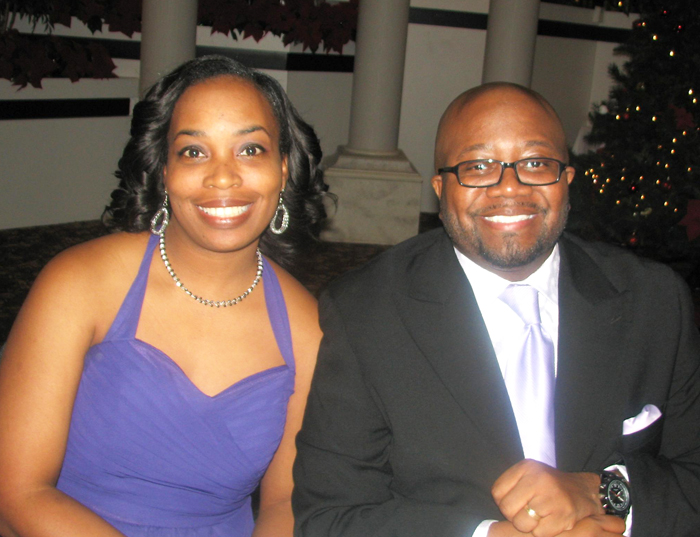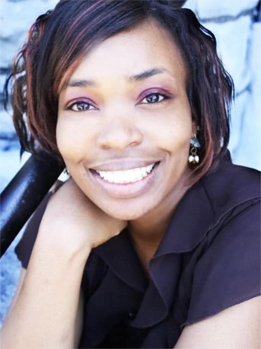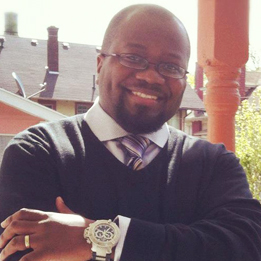
By Rev. Donald L. Perryman, Ph.D.
The Truth Contributor
It’s all about giving attention to what’s important right now, without worrying about whether you’re on the clock or not.
– Tamara Loehr
Nothing has impacted the U.S. political system and policy throughout history more than the Black Church and its African American leaders. Black religious leaders combine the Church’s priestly role of preaching and spiritual empowerment with its prophetic role of social justice activism, civil rights activity, and civic engagement.
Yet, working on the frontlines of communities with individuals facing physical and emotional crises exacts a heavy toll. The dual roles of ministry and activism come with stressors that can harm clergy mental health, such as high rates of depression and anxiety, lead to burnout and emotional overload, and place leaders’ relationships such as family and marriage at risk.
Bishop Randall Parker III leads Canaan Manifested Word Church and was recently appointed to the Toledo Public School Board for the second time. I spoke in-depth with Bishop and First Lady Louise Parker concerning the unique challenges pastors and spouses face while carrying out the complex roles required of Black Church leaders.
Perryman: You recently returned to the school board after six years. Please talk about navigating the tightrope between your personal life, ministry and civic engagement.
Parker III: Ministry is so much more than just the four walls of the Church. There was a time when the preacher’s voice was one of the loudest in the community. Unfortunately, we no longer speak up like we used to. Before getting this appointment, I wanted to make sure that I was relevant and resourceful regarding what’s going on in our community and carry that onto the school board to ensure decisions are student-based and without hidden agendas. I’m still very much an active parent who sees the students’ perspectives in our district.

Perryman: To address public policy issues in an impactful way to individuals’ day-to-day lives takes a lot of time. What does your daily schedule look like?
Parker III: I am trying to figure out the balance, so it’s early morning late days. I was not just sitting around twiddling my thumbs but being able to set forth the difference between urgency, importance, and not right now.
As Pastor, ensuring that members are taken care of comes with having a great team. Personally, it is to ensure that my children are taken care of even though they are older now. It is making time for something as simple as being there for a basketball game. And, as a board member, to make sure that I am in tune with the current events that may happen.
Perryman: How do you determine what to accomplish specifically?
Parker III: I focus on setting goals daily, doing what I can take to reach those goals, and making sure that, number one, I achieve whatever I can. Whatever my piece is for that day, to make sure that I can fit it in and make sure that I don’t overwhelm myself unnecessarily. So, what I can do, I can, and what I cannot do, I’ll try another day.
Perryman: What is it like for a clergy couple to raise three teenagers?
Parker III: Challenging, rewarding and learning. There are some things that I had to unlearn in order to learn. What formerly worked for my generation sometimes becomes a conflict within this new culture of young people. But I’m learning that we have to respect their space and the signs of time without compromising our foundation.
Perryman: What is your perspective, Lady Parker?
First Lady Louise Parker: I would like to add not scrutinizing the children for not being us. When they go out – because they are teenagers, we encourage them to be regular teens. They have their own identities, but we remind them to know that, still, they are a child of God. Your daddy is still the pastor.
Parker III: We don’t want to do anything that makes the children feel as if the expectation is so high that they’ll never qualify to meet it. That became a learning process for me because all I knew was Church. It took a come to Jesus meeting with myself to understand that it makes no sense to win the Kingdom and lose your kid. So, I made up my mind that if they did not see daddy at a game, they would see mama. More times than not, I had to compromise whatever I was doing to make sure that my kids were top priority in whatever sports or activities they were in, so they never had to feel like they were in competition with the ministry.
Perryman: Many preachers are burning out, so this workload can be stressful, ultimately leading to interpersonal conflict in marriages. Can you elaborate?
Parker III: Yes. Heavy is the head that wears the crown. There are times when, as much as my wife tried to help, I was in a place where I felt like nobody could really understand that personal stress and burden. So, in my personal space of insecurity, I wouldn’t share a lot about ministry because I didn’t want to bring the burden of it into the house. Looking back on it now, I would say that not sharing sometimes was more of a hindrance than a help. Holding it in and internalizing caused me to act out by being snappy or distant. However, I didn’t know how to form the words to describe the stress or burden I felt.
First Lady: There were times when we would be going back and forth, and he was like, ‘I’ve got to do this for the church, do this for the church, do this for the church.’ And, I’m like: ‘What about home?’ But then we came to an agreement that we had to communicate more. I was also going through school during the pandemic and working a lot. So, that could’ve been a stressor also.

Parker III: And I was doing Church, work and being Uber driver for the kids and trying to find the balance of making sure that they got to places, which sometimes caused me to miss scheduled times that I was supposed to have in other areas. So, the sacrifice sometimes became stressful also.
Perryman: Do you have a self-care plan to make sure that you keep your family relationship on the straight and narrow?
Parker III: We do massages together. We also take regular me-time or family time. There are activities where it’s us and the children doing different things to make sure that there’s some type of normalcy in the activities of our lives. We try to implement something to keep us sane in that aspect.
Perryman: When things get really, really stressful and the burden becomes so heavy, have you ever thought of quitting?
Parker III: I have, yes, sir. It wasn’t that long ago.
Perryman: Can you elaborate?
Parker III: It has never been to the place of depression or where I felt like I didn’t want to exist anymore. It was more to the place where ‘I don’t know if I can continue to do this and still be effective. So, maybe it would be best for me if I would just not do this piece anymore. Maybe I should just go and develop and build Read for Literacy or whatever.’ I felt like the burden of pastoring was so heavy because, at the end of the day, people will put their responsibilities and issues on you and go on with their lives as if nothing you did matters.
When I was younger, my grandmother said something to me, and I didn’t understand it until later. She said, ‘You can have an attentive ear, but make sure you don’t have a collective heart because everything you hear you can’t carry.’ So, I suffer from something, I call it the curse of compassion, where I care so much that I carry other people’s issues and burdens. They go on with their lives, and I’m still holding it because I don’t know how to let it go. So yes, there are many a time when I was asking the Lord, ‘Jesus Lord, if there be any other way possible, let it be.’
Perryman: How did you respond, Lady Parker?
First Lady: Yeah, I’m that different breed. I would think to myself, ‘Is that fair? He wants to quit because of his burdens for the people. Then is that fair for me for wanting to pick up and get him out of that place?’ So, one of my purposes is to make sure he doesn’t have that headspace. So, there’s been many a time where I’ll be like, ‘well, I’ll just stay home so you can do what you do.’ But that doesn’t really work that way either.
So, for me, it’s to make sure he doesn’t be in that headspace and just keep talking to him. Is pastoring what he wants to do for the rest of his life, or does he have an age where he wants to stop?
Perryman: So, Bishop, is there a way that you deal with the stress?
Parker: It was a season where I really felt like I had nobody. Somehow, God would always send somebody with encouragement or a testimony. Conversations about not internalizing things and being very cautious about with whom I share my pains.
Perryman: Lady Louise, how do you handle the stresses of ministry?
First Lady: One of the things that I deal with is not trusting or putting my entire heart out there and listening to someone. Everyone expects me to be at a different level or always be the strong one for everybody. So, I mostly just write. That’s how I release stress through journaling and coloring.
Perryman: Finally, what recommendations do you have for other clergy leaders and their spouses? Is there any advice about keeping their relationships fresh and avoiding being taken under by the heavy toll of ministry?
First Lady: I would suggest self-care, keeping a day or a set time for themselves, and communication. Continue to love on each other, talk. If one is having a bad day, let them have a bad day, but let them get over it, help them get over it. Prepare a nice meal that you both like. And, always remember that you can’t take on all the burdens of the world and be able to make it.
Parker III: Communication defeats confusion. So, know your role and place. You married each other; you didn’t marry the titles. So, it’s essential to respect the person you became one with without having the burden of the responsibility that the title sometimes carries. At the end of the day, people love the titles, but you fell in love with the person.
Perryman: Any other self-care strategies that would be important?
Parker III: Learn to say no sometimes to the people while being strong enough to say yes to your spouse.
Perryman: Thank you both.
Contact Rev. Donald Perryman, PhD at drdlperryman@centerofhopebaptist.org
